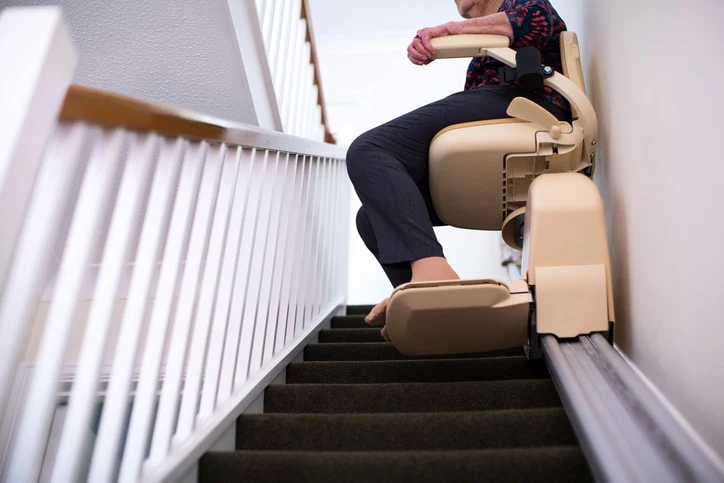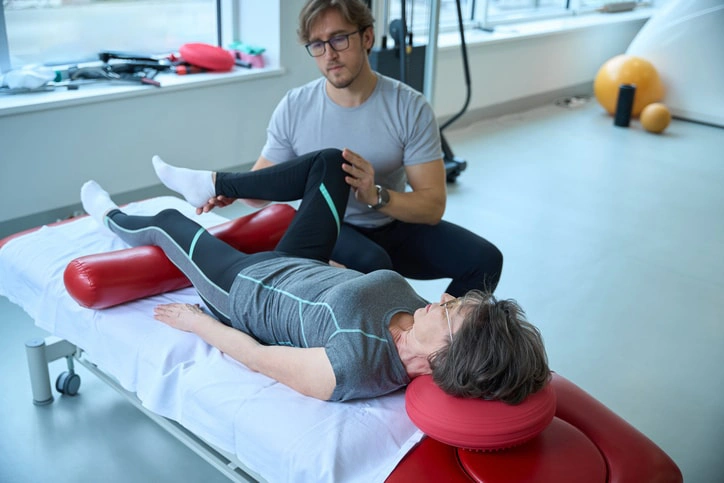Table of Contents
- How Can Occupational Therapy Help Adults?
- Why would an adult need occupational therapy?
- Occupational Therapy for Specific Conditions
- Benefits of Working with an Occupational Therapist
- How Occupational Therapists Assist Adults
- NDIS Occupational Therapy for Adults
- Finding an Occupational Therapist
- Conclusion
- How can we help?
How Can Occupational Therapy Help Adults?
Occupational therapy is a healthcare treatment that helps adults overcome physical, cognitive, or mental challenges to participate in day to day activities and increase independence.
Occupational therapists use a holistic approach to address physical, emotional, and cognitive needs of the whole person – after all, all of these aspects are part of you!
Occupational therapists work with adults to:
identify and address barriers to daily living – for example, modifying the height of kitchen benches so that a wheelchair user can comfortably prepare meals.
teach strategies and skills – such as emotional regulation techniques.
promote health and wellbeing – for example, designing an exercise program or meal plan.
achieve their goals – such as completing a qualification, being able to participate on a soccer team or getting a job.
improve independence and quality of life.

Why would an adult need occupational therapy?
People can see an occupational therapist to help with a wide range of physical, mental, cognitive, developmental, physical, and psychosocial disabilities, as well as injuries and other conditions.
While other medical professionals treat your condition and its symptoms, an occupational therapist is focused on how that injury, disability or condition affects you in your day-to-day life, and how to overcome the challenges it presents.
Occupational therapists can work with other health professionals to provide comprehensive support.

Occupational Therapy for Specific Conditions
These are just some examples of specific conditions for which adults might see an occupational therapist.
Autism
An occupational therapist can help autistic adults to develop their sensory processing, social skills, emotional regulation, and other essential skills. Occupational therapists can also help with aids and strategies to assist with daily life, including challenging situations.
ADHD
Adults with ADHD can use occupational therapy to develop strategies for planning and organising, regulating emotions and sensory processing.
Acquired brain injury
Acquired brain injuries can result in a range of functional challenges for adults. Occupational therapists can help with managing the physical and cognitive effects of acquired brain injury to improve function and independence in everyday life.
This may include exercises for strengthening both physical and mental capacity, aids or modifications to make tasks more achievable or strategies for challenging situations.
Intellectual or cognitive disability
Occupational therapists can help improve daily function and independence for adults with intellectual or cognitive disabilities through:
Teaching new skills
Developing strategies for challenging tasks or situations
Making changes to environments, for example at home or in community settings
Suggesting aids or equipment that can help.
Physical disability
Adults with physical disabilities can benefit greatly from occupational therapy. An occupational therapist might help modify tasks to make them more manageable, make changes to home or work environments, suggest aids or equipment to make tasks easier. They can help develop fine motor skills, such as using cutlery or doing up buttons, and gross motor skills, such as walking or going up and down steps.
Psychosocial or mental health conditions
Occupational therapy can help adults with mental health conditions and psychosocial disabilities by providing strategies for mood regulation, planning and organisation, and community engagement.
Stroke rehabilitation
Occupational therapists can help adults who have had a stroke to regain their independence and participate in daily activities.
To assist recovery from a stroke, occupational therapy can:
improve cognitive skills, such as memory and attention, after a stroke.
provide strategies for managing day-to-day tasks, such as bathing and dressing, after a stroke.
enhance physical abilities, such as mobility and balance, after a stroke.
provide support and guidance for adults to return to work or leisure activities after a stroke.
Chronic pain management
Occupational therapists can help adults to manage chronic pain and participate in daily activities.
To help with pain management, occupational therapy can:
improve cognitive skills, such as stress management and coping strategies, for adults with chronic pain.
provide education and training on pain management techniques, such as relaxation and breathing exercises.
enhance physical abilities, such as mobility and flexibility, for adults with chronic pain.
provide support and guidance for adults to participate in leisure activities and hobbies despite chronic pain.
Ageing and associated challenges
Older adults can face a range of challenges associated with ageing, such as decline in cognitive abilities (such as difficulty remembering things), vision loss or the risk of falls.
Occupational therapists can help suggest alterations in the home to help keep you independent for longer. They may also suggest cognitive tasks to exercise your brain, and physical exercises to maintain your strength and mobility.
Rehabilitation
Occupational therapy plays a crucial role in rehabilitation for adults recovering from an accident, surgery, health condition or workplace injury. Rehabilitation occupational therapy focuses on helping individuals regain independence, function, and quality of life. Occupational therapists work with clients to assess their specific needs and create tailored strategies for daily activities, including personal care, work, and leisure.

Benefits of Working with an Occupational Therapist
One of the great benefits of occupational therapy is its practical focus on day-today activities. This means you see real results in the areas that are important to you in your everyday life.
Occupational therapy can:
improve cognitive skills, such as memory, attention, and problem-solving.
provide stress management techniques and strategies to cope with daily challenges.
enhance daily living skills, such as household tasks, meal preparation, and personal care.
enable participation in leisure activities and hobbies, promoting overall wellbeing.
Occupational therapy is also flexible and highly tailored to the individual and their circumstances. This means that occupational therapists can offer creative solutions designed for your unique situation.
Occupational therapy complements other treatments and therapies and occupational therapists will work with your other treating professionals to ensure everything is working together to help you achieve your goals.

How Occupational Therapists Assist Adults
And occupational therapist will start by spending time with you to assess your functional capacity – that is, to figure out what you can do, and what’s challenging for you. They will also work closely with you to work out what’s important to you and set goals for your occupational therapy.
Occupational therapists use a variety of interventions or treatments, including:
adaptive equipment and assistive technology
education and training on daily tasks, such as bathing, dressing, and grooming
developing strategies for managing daily tasks, such as time management and organisation
Occupational therapists can provide support and guidance for adults to live independently and participate in their community. They will encourage you to find suitable hobbies and activities that suit your interests and will help you to put your therapy plan into action.
NDIS Occupational Therapy for Adults
If you have an NDIS plan, you may have occupational therapy services included. Check your plan funding category Capacity Building (Improved Daily Living) and if it contains available funds, you will be able to use it for occupational therapy sessions, with no out-of-pocket expenses.
Finding an Occupational Therapis7
To find a local occupational therapist, you can search online or ask for referrals from healthcare professionals.
Occupational therapists work in a variety of settings, including hospitals, clinics, and private practices.
Ask other health professionals: Your current treating practitioners, like your GP, specialist or other allied health professionals already know you and your situation and will be able to recommend an occupational therapist who can help.
Do some research: Look online or in medical directories to find occupational therapists, in particular one that specialises or has experience in your disability, injury or condition.
Make contact: Phone or email services and ask about their experience, approach and the treatments they use, and ensure they line up with your values and goals.
Don’t be limited by location: OT telehealth appointments (sessions held online) can work really well and can open up a whole lot more options compared to seeking a local practice.
Conclusion
Occupational therapy can help adults to overcome daily challenges and live independently.
Occupational therapists can provide a range of services, including education and training, adaptive equipment, and assistive technology.
Occupational therapy can improve cognitive skills, physical abilities, and overall wellbeing.
How can we help?
Goal Coach has experienced occupational therapists ready to help with your unique challenges.
With no waiting list for appointment, you can book in straight away for a virtual appointment, no matter where you are located in Australia.
Get started with a 15-minute free chat to make sure the service is right for you.










